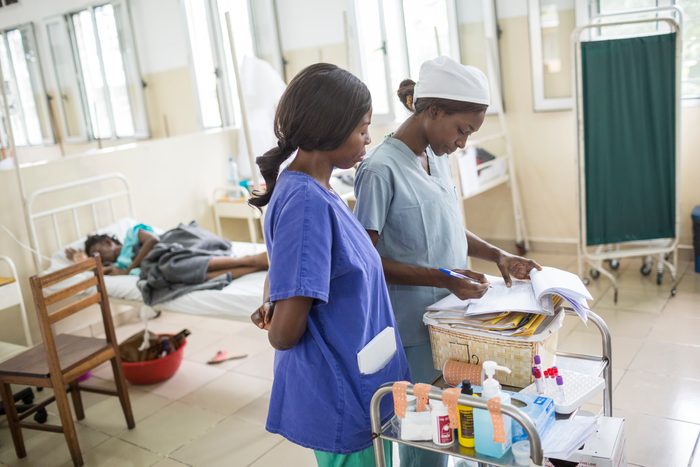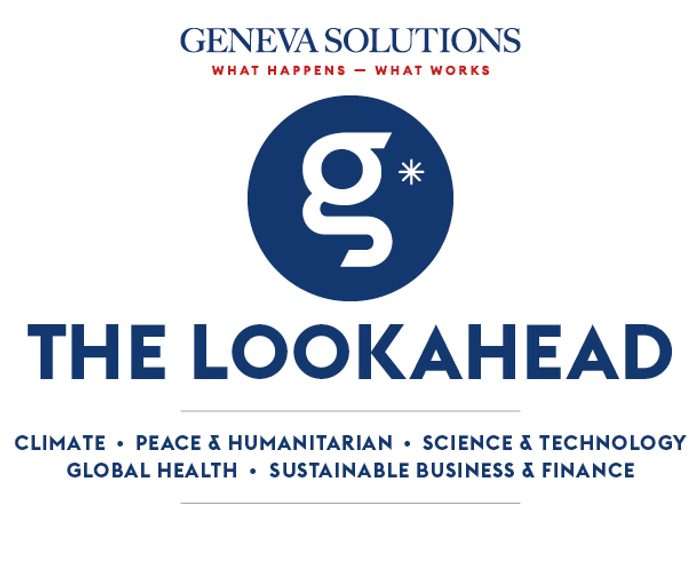Good morning, this is Pip. Today, we’re taking a look at what’s holding the global fight against HIV/AIDS back as countries and organisations continue to reel from the impact of the Covid-19 pandemic and other crises.
As violent protests and the political crisis continue in Peru following the impeachment of president Pedro Castillo in December, the UN Human Rights Council will discuss the country’s rights record. |

|

A nurse and trainee at work in CHK hospital in Kinshasa, Democratic Republic of Congo, run by Médecins Sans Frontières (MSF), June 2017. (Credit: MSF/Kris Pannecoucke)
|
|
What’s holding back the fight against HIV?
As HIV and AIDS continue to impact millions of people around the world, humanitarian organisations warn that donations to fight the disease are flatlining, threatening decades of gains and pushing the global response further off track. This is forcing some countries to make difficult decisions on what to prioritise in their HIV response, leaving dangerous gaps that could cost millions of lives. We speak to two Geneva-based organisations to hear what’s hampering progress.
Geneva Solutions (EN)
|
|
Peru in review at the Human Rights Council amid deadly crackdown.
After anti-government protests spread last week to the Peruvian capital, Lima, the South American state will be in the hot seat in Geneva on Wednesday to answer questions about its human rights record. At least 50 people, mostly protesters, have died nationwide in violent scuffles with anti-riot police and the military. While Peru’s Universal Periodic Review was for the three years ahead of the start of clashes in December, Peruvian delegates will be facing questions about the disproportionate use of force by state authorities. Switzerland, Czechia, Argentina, Gabon, Ghana, Guatemala, Benin and South Korea are also set to be examined this week.
OHCHR (EN)
|
|
Disarmament talks resume amid heightened tensions.
Conference on Disarmament will kick off the first part of its yearly meetings today, running until the end of March. The Geneva-based body will again try to break its more than two-decade-long stalemate to advance on key issues, including nuclear war, new weapons of mass destruction and the arms race in outer space. Its 65 member states will have to grapple with an additional set of complications, as Moscow turns up its nuclear discourse and pressure increases on NATO members to contribute more weapons to Ukraine. Meanwhile, US and China relations have hit a slump amid heightened tensions in the Asia-Pacific region.
UN Geneva (EN)
|
|
|
- WTO director general Ngozi Okonjo-Iweala reacting to news of New Zealand Prime Minister Jacinda Ardern resigning from office.
|
|
|
GS news is a new media project covering the world of international cooperation and development. Don’t hesitate to forward our newsletter!
Have a good day!
|

|
|
Avenue du Bouchet 2
1209 Genève
Suisse
|
|
|
|









